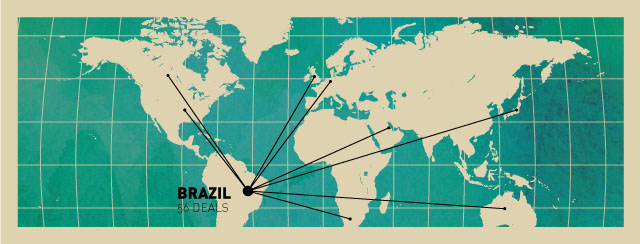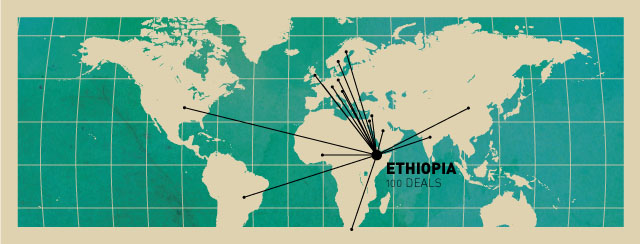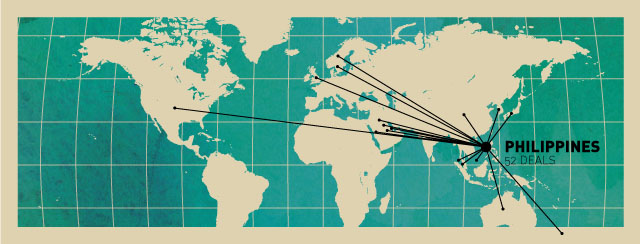


What would you do if you were the leader of a country with lots of people, little water and not enough good land for growing crops to feed your population? You might buy property in another country that can grow your food for you.
Welcome to what some are calling the “new colonialism”. It’s a great land grab sparked in part by the 2007-2008 food crisis that left some countries like China, India, South Korea and Saudi Arabia wondering how they might feed their growing populations in the future. The purchase of cheap agricultural land also promises great profit to the investors.
A think tank in California, the Oakland Institute, recently published a report titled New International Land Deals Database Reveals Rush to Buy Up Africa In the report, they explain that some 5% of Africa’s agricultural land has been bought or leased by investors since 2000. And since 2008, the pace of land deals has really ramped up without much international regulation.
In response to this alarming trend, a consortium of five major European research centers and 40 civil society/research groups has created the world’s largest public data base of international land deals. The portal was launched in April. Most of the deals have been shrouded in secrecy and a lack of available data has made it difficult to know how much land is really changing hands.
Their data has confirmed the suspicions that wealthy food-importing countries are buying up available agricultural lands in countries that already face food shortages. But increasingly, developing economies are getting in on the “new land rush”. In Brazil for example, agribusiness companies seem more inclined to invest in other South American countries while companies from South Africa tend towards investments in other less developed African nations.
But while nation-states may be leading the charge, invesment banks, hedge funds, commodity traders, pension funds, foundations and individuals are all getting involved in these land investments. Even some universities like Harvard and Vanderbilt are investing in foreign land for agriculture according to the Oakland Institute report.
The fallout of this shift in land remains to be seen, but with access to clean water a growing concern and food shortages like the famine in Somalia becoming more common, a clash between local farmers and foreign investors seems inevitable. Another report just published by the International Land Coalition and the Oakland Institute called Dealing with Disclosure aims to create greater transparency and regulation around these deals while giving local communities the tools they need to make fair and informed decisions when dealing with foreign investors.
Many of the investor countries see the purchase of viable agricultural land as crucial to their development of food security. Saudi Arabia, for example, has “earmarked $5 billion to provide loans at preferential rates to Saudi companies to invest in countries with strong agricultural potential,” according to the the U.K.-based Institute of Science in Society.
It seems that one country’s efforts to create food security may result in another country’s food shortage. To successfully feed the growing global population of 7 billion and counting, we are going to have to get creative and transparent, quickly.
